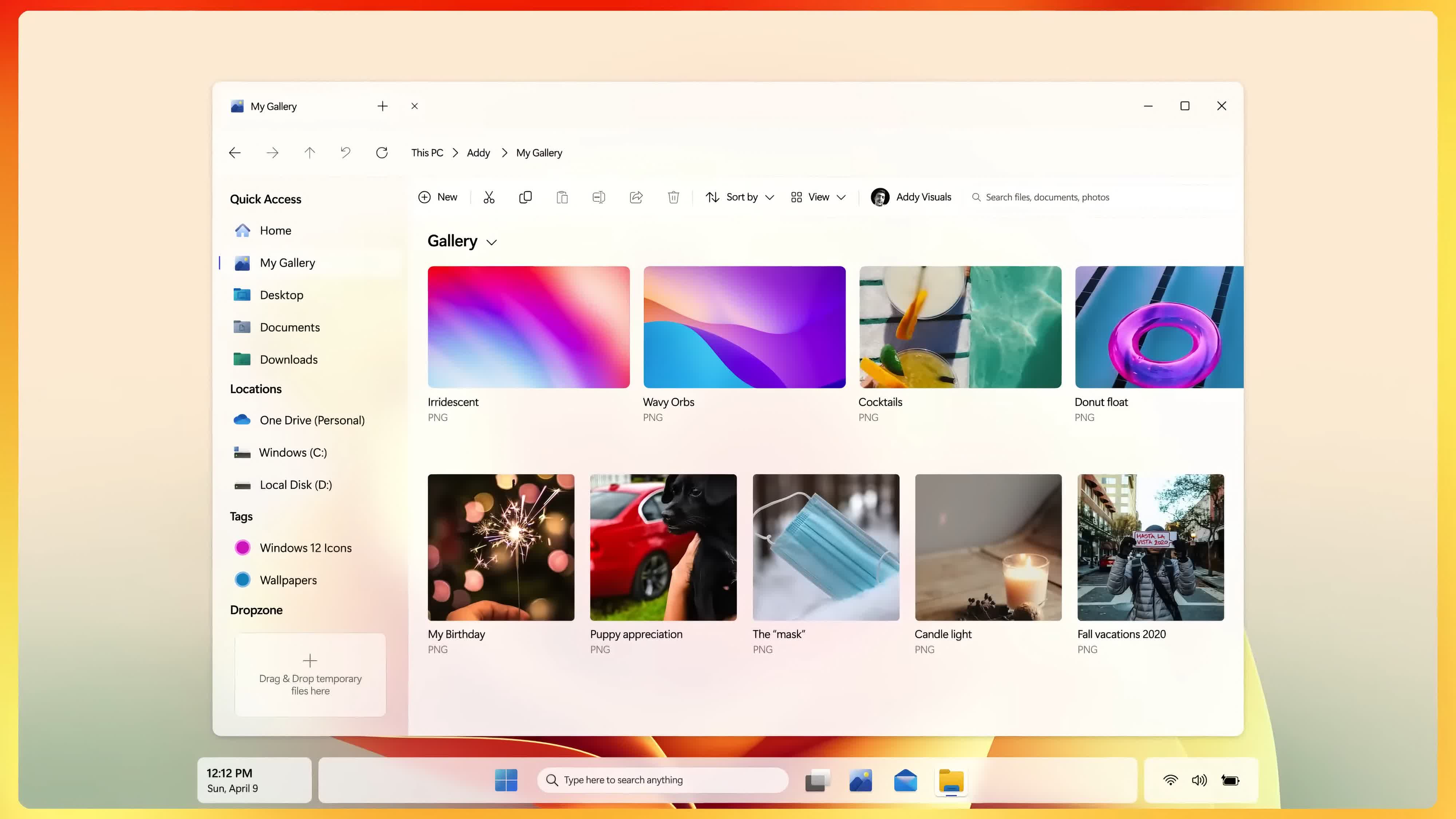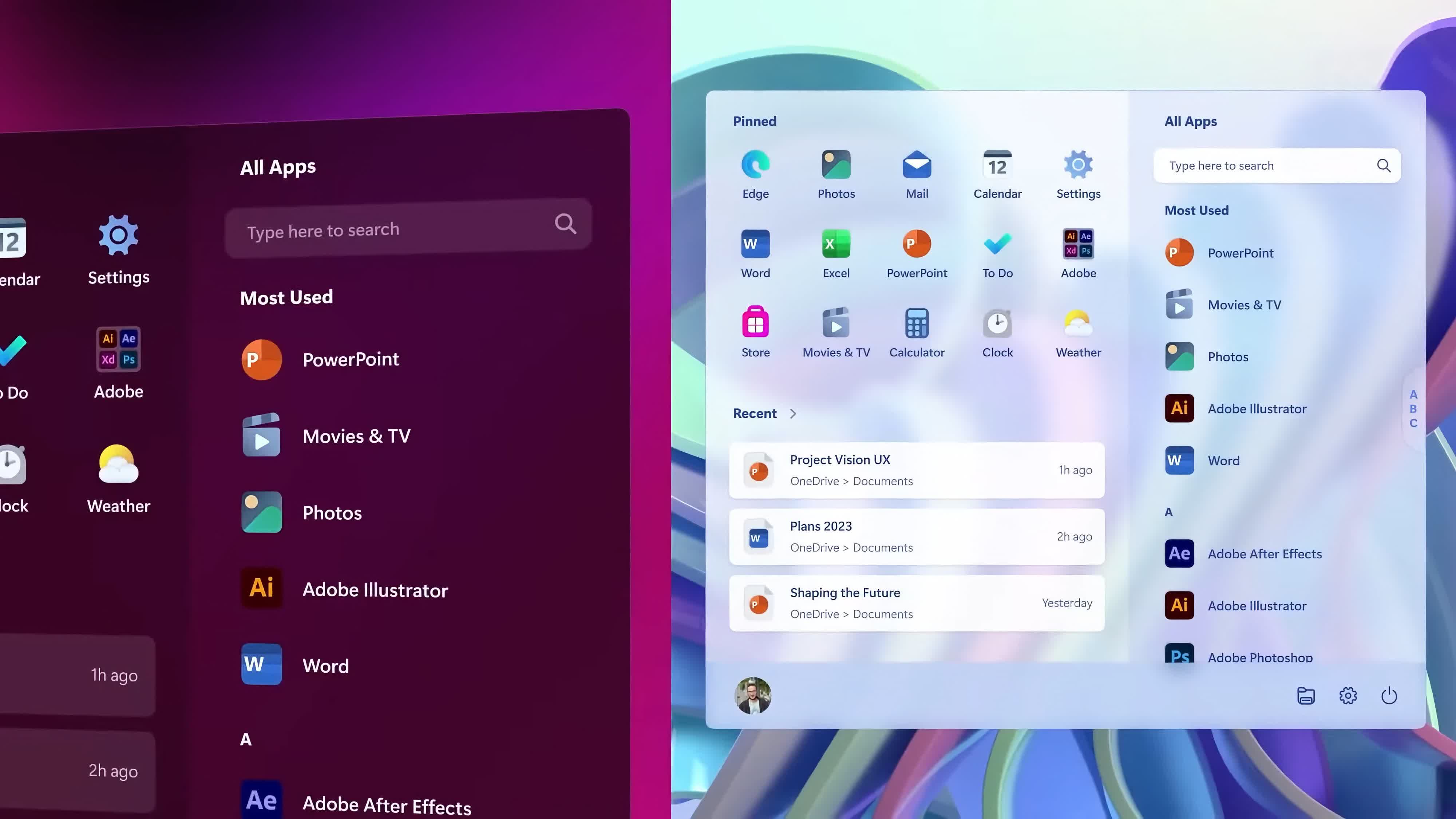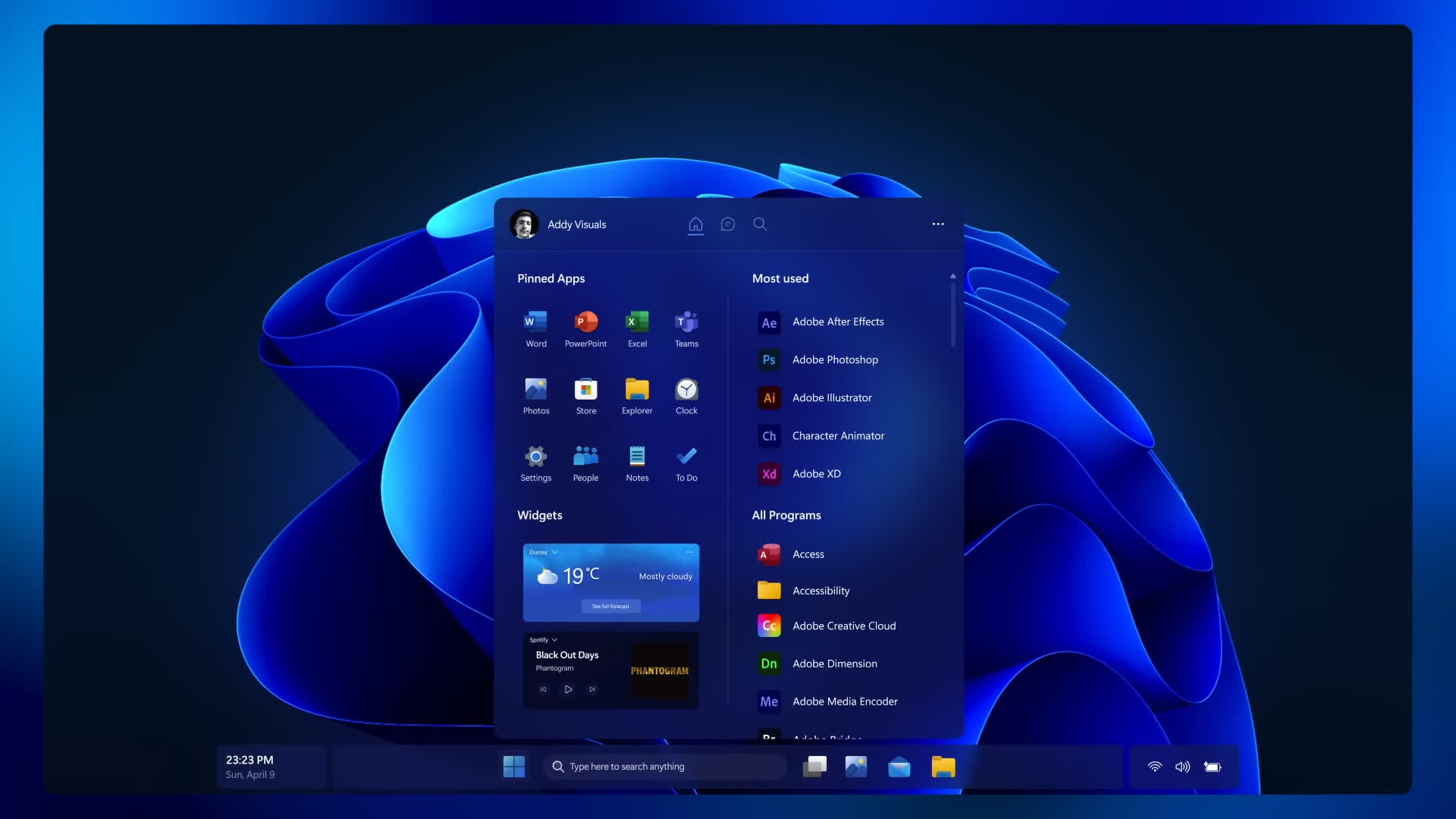Something to look forward to: Rumors have been circulating throughout the year, suggesting that Microsoft is gearing up to launch Windows 12 in 2024 featuring deeply embedded AI functionality. Newly uncovered details reveal new features that paint a clearer picture of the company's evolving plans. Microsoft might not have yet decided whether to call this next major release Windows 12.
Sources have told Windows Central that new Windows releases coming next year will introduce substantial changes to the operating system. This information aligns with earlier rumors that a new version, possibly Windows 12, would put AI at the forefront.
A more powerful version of Copilot – the AI assistant that Microsoft pushed to Windows 11 systems with the 23H2 update – is expected to leverage the neural processing units (NPUs) in the latest Intel and AMD processors to enhance AI workloads. The integration of generative AI and large language models could allow a search engine to understand context and natural language queries when searching the OS and a system's history (if Microsoft ever fixes Windows search, this could finally be it).
For example, Copilot could understand a command like "Find me the document that Bob sent me on WhatsApp a few days ago." Windows might also use NPUs and machine learning to upscale videos and games, akin to Nvidia's DLSS feature. Intel recently demonstrated how its upcoming Meteor Lake CPU lineup, which introduces NPUs, can apply AI-based upscaling using integrated graphics.
Other potential AI functionalities include real-time translation of captions in multiple languages and wallpapers that utilize layers to create a 3D effect.
Beyond AI, next year's updates could refresh the Windows interface by reorganizing Microsoft 365 or moving parts of the taskbar to the top of the screen. More intelligent power management is also planned. However, Microsoft is still experimenting with some of these features, and they may not all make it to the public release.
The report does not explicitly mention Windows 12, but indicates that a new version codenamed "Hudson Valley" is coming, based on the "Germanium" platform. The current version of Windows 11 might receive one more major update next spring before Microsoft introduces Germanium in June and Hudson Valley in the Fall.
Previous rumors indicated that Windows 12 might debut around June, but plans for Arm systems could have shifted that timeline. Qualcomm's Snapdragon X Elite processor, which promises to be Windows' answer to Apple Silicon, apparently will rely on Germanium enhancements. Snapdragon X Elite systems might ship preloaded with Germanium next summer and then receive the Hudson Valley update sometime before it reaches other Windows 11 users in the Fall.
Ultimately, Microsoft could be deciding whether to call Hudson Valley Windows 12. Windows 11 has yet to overtake Windows 10's market share, so counting upward again could damage the OS' brand.
Concept images by Addy Visuals


